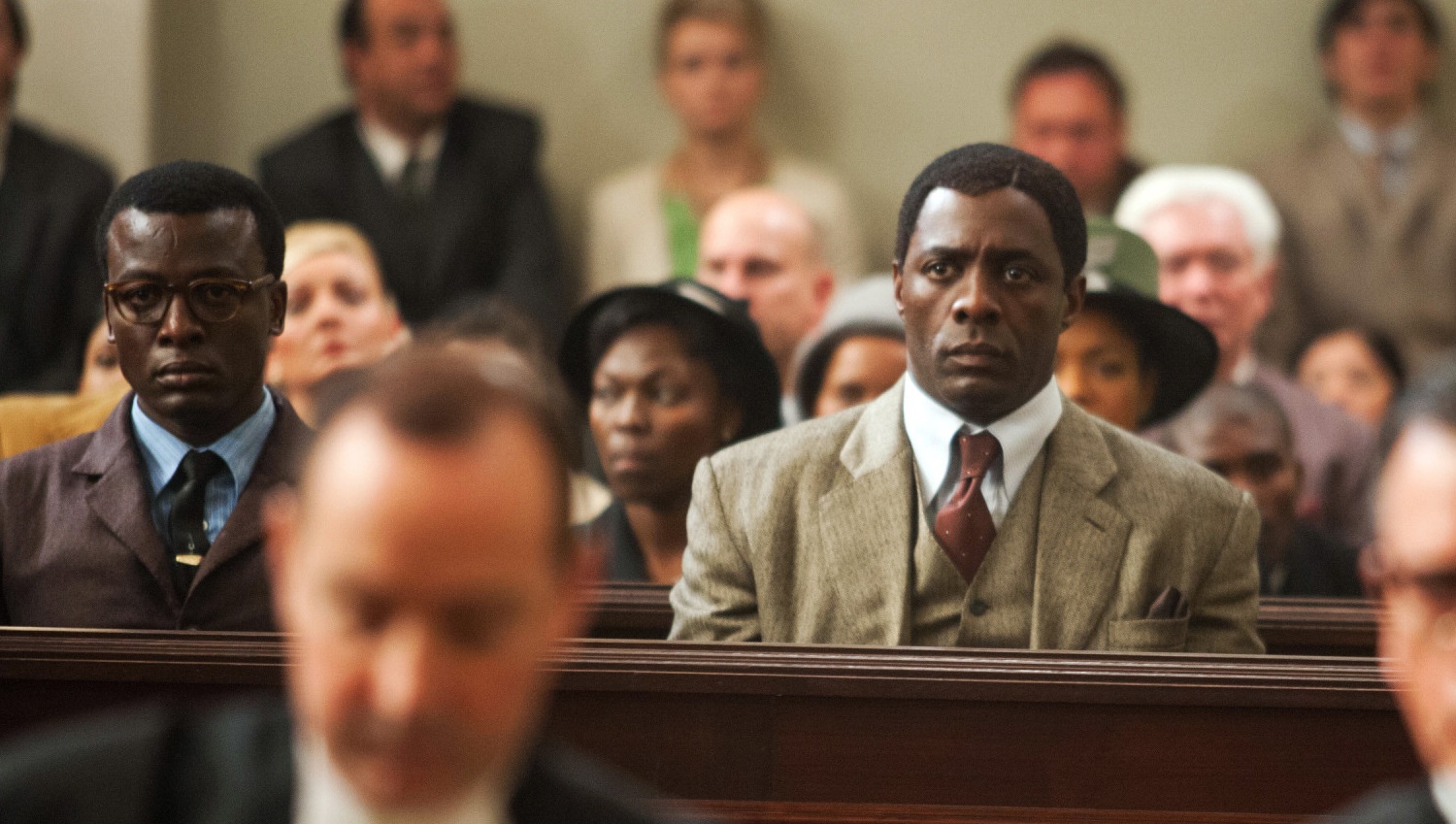
Mandela: Long Walk to Freedom
Dustin Chase
This has been an incredible year for black history in film, and another beautiful film joins that welcome cluster. Director Just Chadwick (The Other Boleyn Girl) is no stranger to historical pictures, and while his Mandela picture isn’t the sleekest and well rounded piece of cinema, it’s still a beautiful telling of an amazing story in the dramatic fashion we haven’t really seen on film. Beyond what Morgan Freeman did as Mandela in Clint Eastwood’s somewhat forgettable Invictus, Idris Elba (Pacific Rim) really fleshes out his part, even thought his larger frame seems to always detract from the impersonation. The Butler, 12 Years a Slave, and now Mandela, may be seen as a 2013 trilogy of black Africans’ struggles and victories.
We begin with teenage Nelson Mandela, nude, washing away the white paint and preparing to seek out his place in South Africa. Even in his early life, this smart, educated man defends wrongly accused black people against the hateful and angry white people of power and money who have taken over his country. “I want my children to walk freely in their own land”, he says. Mandela crusades and fights to bring about change in the laws and government, and this struggle turns violent, resulting in a life sentence on Robben Island in 1964. Over the next 25 years, which he would spend isolated and behind bars, the country falls deeper into civil war, and the nation has to come to terms with the fact there may only be one man who could unite South Africa.
Will very likely acquaint younger viewers with a very important piece of history is a visually representative way.
It’s certainly a history lesson for those unaware of Mandela’s journey to see him become one of the most respected leaders of our time. Elba’s portrayal of him is full of passion and strength. Elba has only recently been getting higher profile roles, and he immerses himself into this role, with his appearance visually enhanced by makeup and facial prosthetics to play the older more recognizable Mandela. Equally as impressive is Harris as Mandela’s wife, Winnie, whose story isn’t as well known but equally as fascinating in her juxtaposition to Mandela and her influence on his changing views of the world. The theme and narrative become something as simple as forgiveness versus revenge.
The cinematography by Lol Crowly really supports the film when it needs a boost during the long running time of over two hours. Winnie’s colorful African dresses create interest, especially in contrast to the military style she adopts later on in the film. The apparent inability to sacrifice the length of the story and focus on the more interesting portions is probably the only fault of the film. But I enjoyed celebrating the life of an extraordinary man on cinema in a way that will very likely acquaint younger viewers with a very important piece of history is a visually representative way.
Final Thought
The long-winded historical biopic is well acted and visually captivating.
